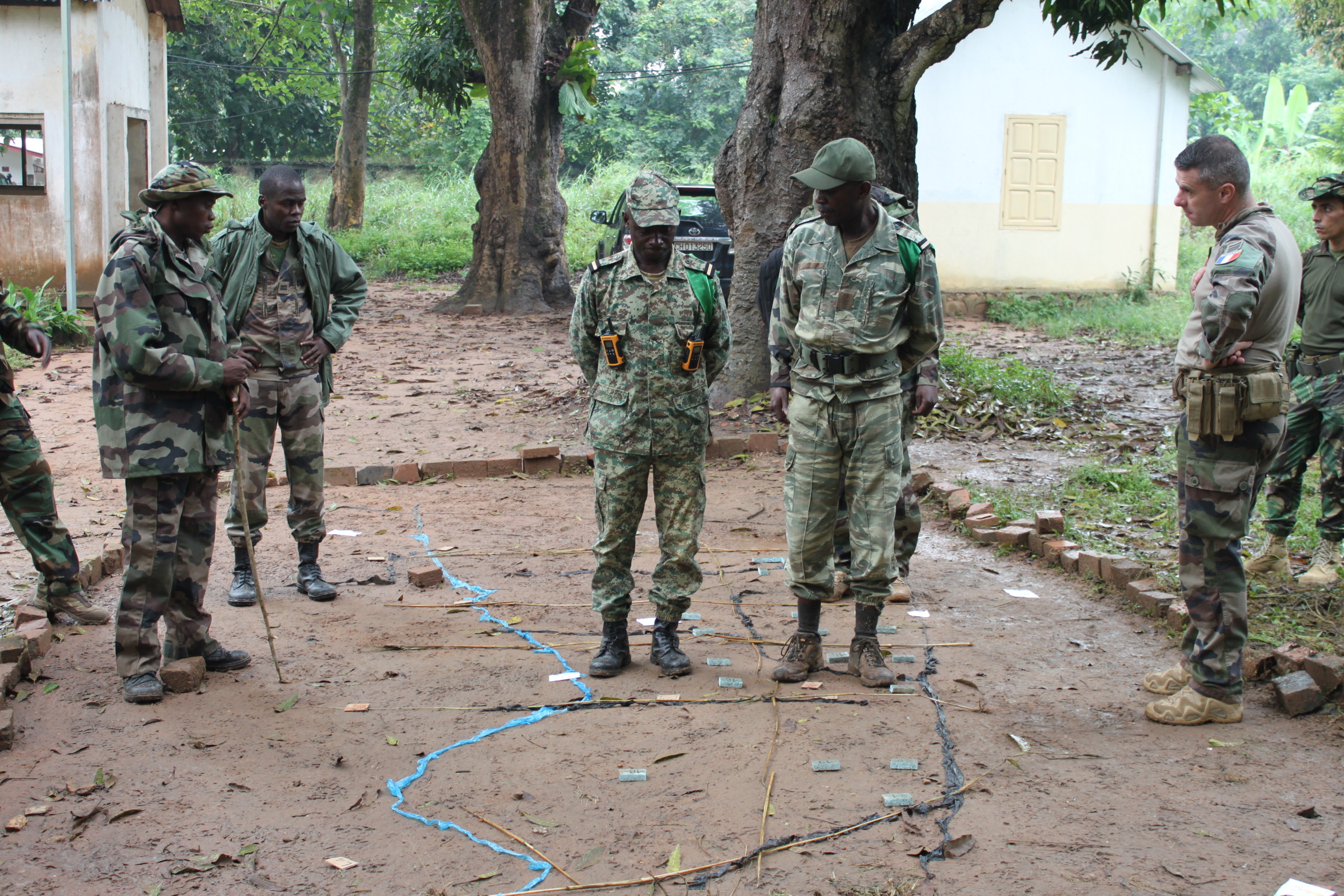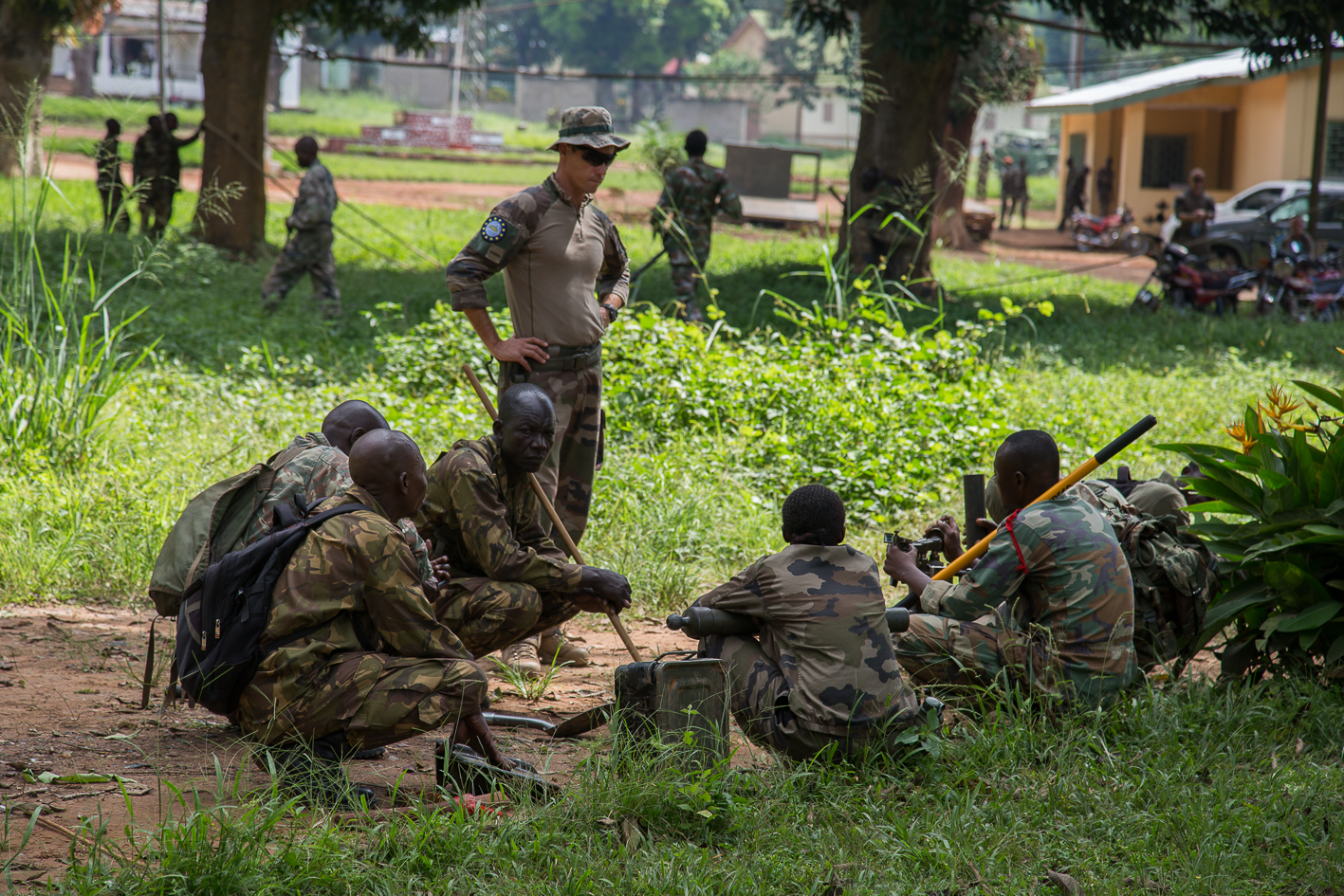Report in Bangui. 1. At Camp Kassaï, FACA training is progressing at a good pace
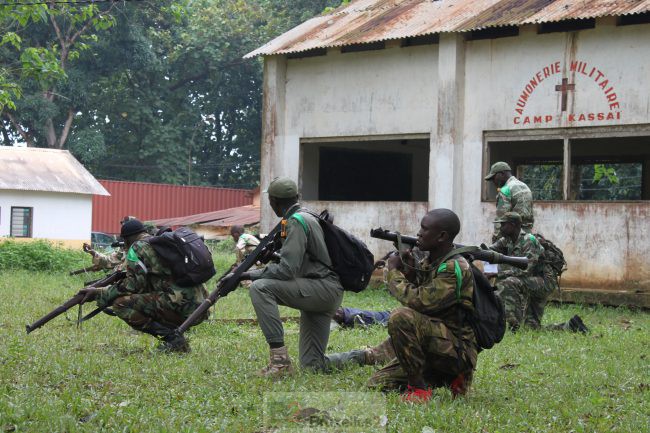 (BRUSSELS2 - in Bangui) Overcoming obstacles, hand-to-hand combat, shooting, mounting and dismounting of weapons, topographical orientation, first aid... these are some of the training courses that the Central African Armed Forces (FACA) receive from the european training mission EUTM RCA. This training, they will have to demonstrate that they have acquired it this Friday, November 3, during a first test (1). Visiting Bangui, B2 was able to attend the latest training and preparations.
(BRUSSELS2 - in Bangui) Overcoming obstacles, hand-to-hand combat, shooting, mounting and dismounting of weapons, topographical orientation, first aid... these are some of the training courses that the Central African Armed Forces (FACA) receive from the european training mission EUTM RCA. This training, they will have to demonstrate that they have acquired it this Friday, November 3, during a first test (1). Visiting Bangui, B2 was able to attend the latest training and preparations.
First step: the sandbox
From 8 am, the first European instructors arrive at Camp Kassaï. Despite the rain, the meeting point with the FACA officers is the “sandbox”. It is here, in a very graphic way, that the Europeans explain the exercise in its entirety to the lieutenant who leads one of the companies of Battalion 3. Having attended the school of Coëtquidan (2012-2015), Lieutenant Ulrich Yamande quickly understands the nature of the trials by which his men will be tested. It is now up to him to take charge of the rest, giving instructions to those who will lead the platoons (10-12 men). In order to motivate them, the groups are placed in a competitive situation. The unit that will make the best punctuation on all 12 tests will be the winner. are at stake" the pride of winning, but also a “small” prize », Explains the Spanish colonel, Antonio R. Bernal Martín, who commands the training pillar (“Training“).
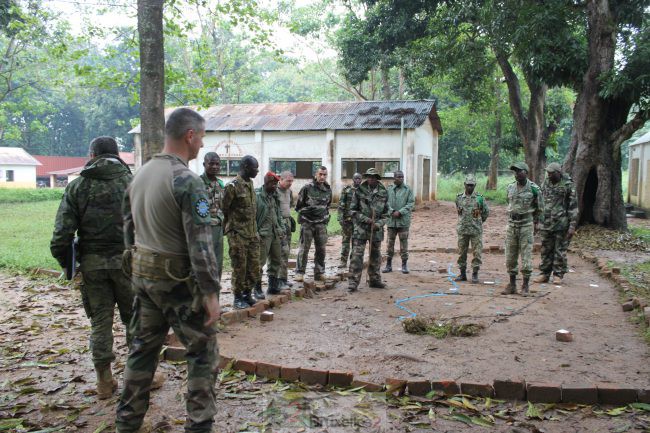
Know how to orient
This is perhaps the most difficult ordeal for Central African soldiers. The first question in today's test questionnaire illustrates this well. “What are contour lines on a map for? And for good reason, few of them had handled a topographic map before arriving in Kassaï. Today, compass in hand, they must give the azimuth of three points that the instructor pointed out to them. For the most part, it's been successful. The smile, often discreet, that they give each other reveals their satisfaction.
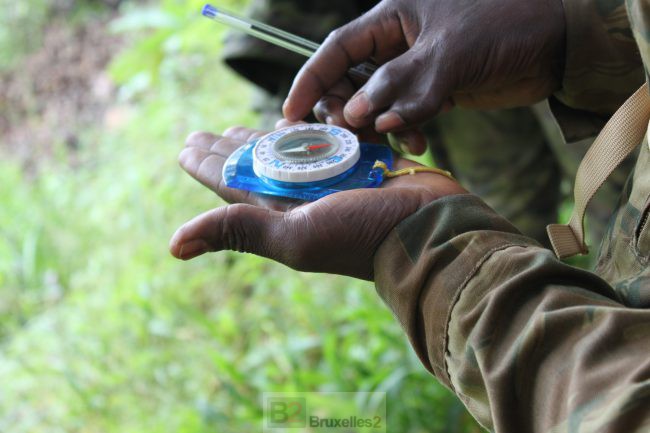
... and travel in groups
Next test: moving in a group. Like a test of team-building, it's an obstacle course that the Europeans have chosen to climb... with added difficulty. The course must be crossed while carrying a box of five kilos, theoretically containing mortar shells. The unit that I am quickly chooses its strategy. Whoever is fittest will carry the crate. In first position is placed one of the youngest, armed. He will have to be the first to cross each of the obstacles and ensure the safety of the other side. The unit leader, who should position himself in the middle of his team, chooses to close the line, in order to accompany one of his soldiers injured in the knee. Finally, after a few mistakes, they finished the course in 11 minutes... far from the 7 minutes 30 set as the objective. " For Friday's test they will be ready says the French instructor in charge of the workshop. " The other groups all did better whispers to me, in English, the Swede who accompanies him.
Learn to fight... with weapons and bare hands
To be a real soldier, you have to have weapons. It is therefore logical that EUTM trains the FACA in shooting. However, resources are limited. " They must learn to take care of their weapons. That's why one of the tests is the disassembly and assembly of an AK-47. To succeed, it must be done in less than five minutes. Few weapons and also little ammunition. For today's exercise, only two people per team fired. And each had only ten cartridges. But the FACA must also know how to deal with attackers using edged weapons (knives or machetes). Objective: to defend oneself but also to neutralize the enemy.
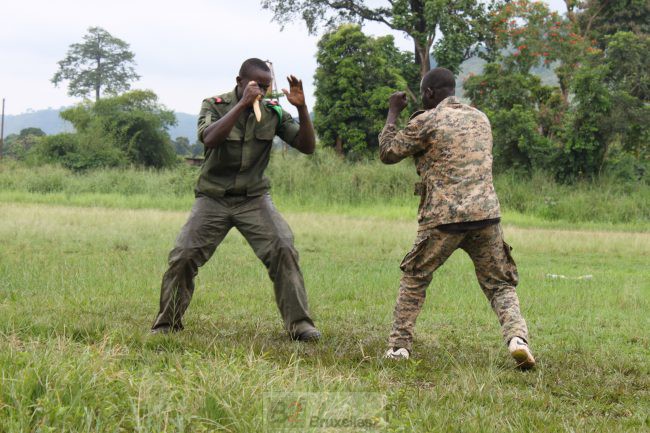
... while respecting human rights
The Europeans insist on this. " Neutralize not kill ". This is one of the key elements, forming an army that respects international law, whether in their interactions with armed prisoners or civilians. This is the human rights expert, Cynthia Petrigh, of the company Beyond Peace, who is responsible for explaining the rules of war.
First aid: leave no one behind
Evacuating an injured person while providing area protection, establishing the best place to give first aid, performing a tourniquet... This is an essential element of European training. Especially since this is not natural for the FACA. " For them, when someone is hurt, they are left behind...because they carry an evil spirit within them. During the first exercises, most refuse to touch the people who play the injured » explains Barothi Hambursin. This Belgian uses her own experience, particularly in Afghanistan and Iraq, to demonstrate how a few seconds can make a difference and save a life. A more general challenge then appears, that of time management. " They don't have a watch She says.
Proud FACAs
The soldiers, NCOs and officers I have met all have one thing in common. They are proud to belong to the FACA, and even more to be in one of the battalions trained by EUTM.
...despite difficult conditions
It rained until daybreak, 5am. The roads, invaded by water currents, then stagnant water, are difficult to pass. Despite this, some got up before dawn to come to the camp. They did between 10 and 20 km. Often on foot...because their salary does not allow them to take motorcycle taxis. If all wear military uniforms, none are alike. On the feet, some have boots, others have original red, green or blue sneakers. And for good reason, the Ministry of Defense did not provide them with equipment. What they wear, they bought themselves. EUTM, which does not have the right to provide this material, is working to find a donor. For the certification ceremony of the battalion as a whole, in December, the personnel of BIT 1 could wear uniforms (and equipment) provided... by China!
(Leonor Hubaut)
To be continued...
(1) Three companies make up Battalion 3 (BIT3). Each goes to Camp Kassaï, the EUTM RCA training camp, for a three-month training. After six months, only two companies will be put to the test this week. Final certification for the entire battalion is scheduled for December.
